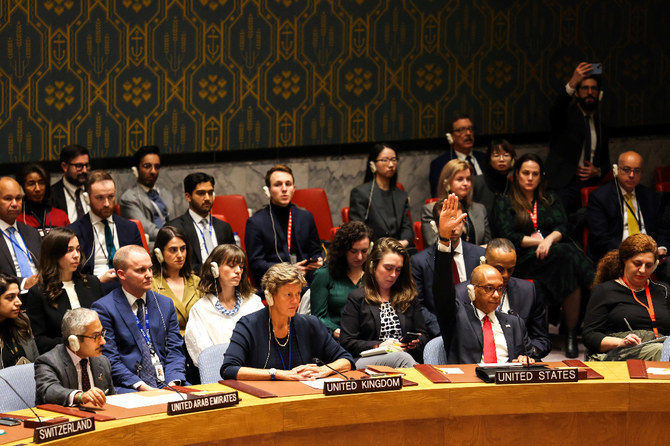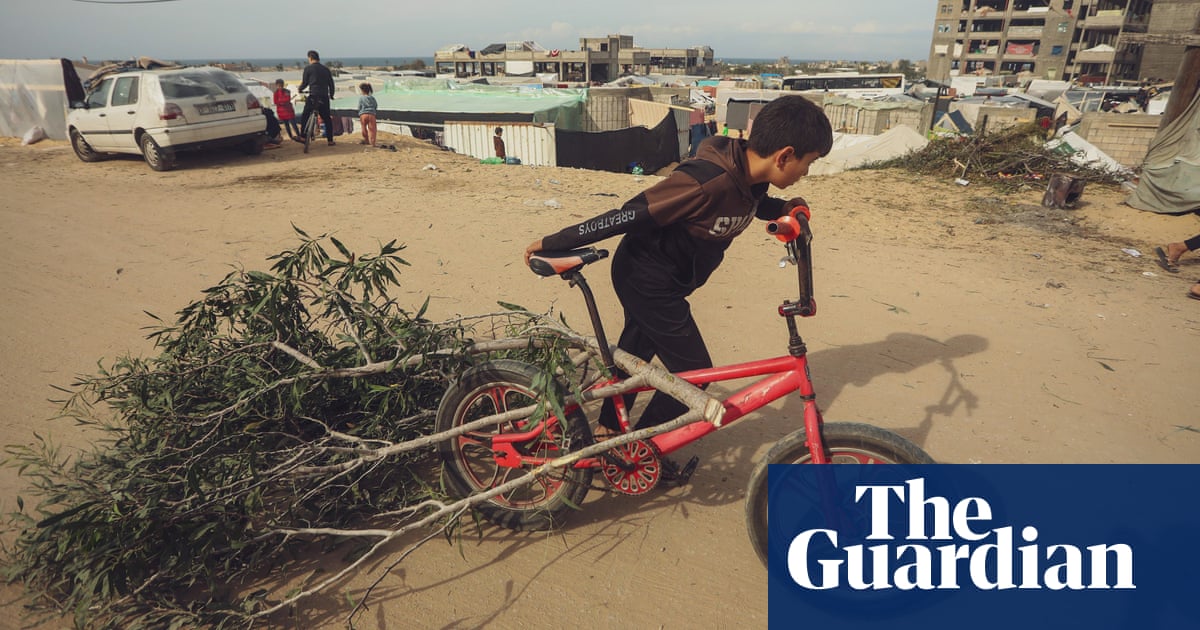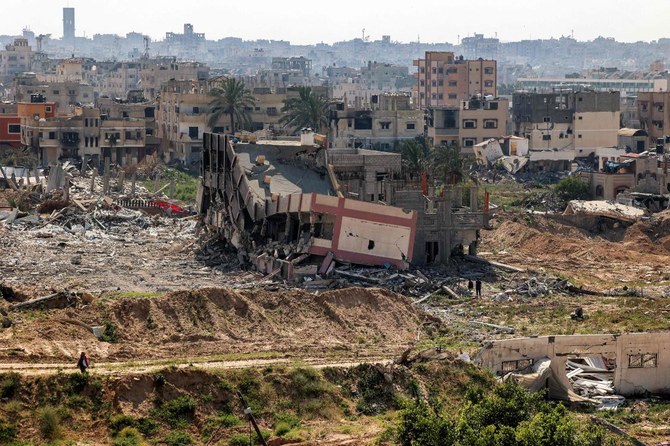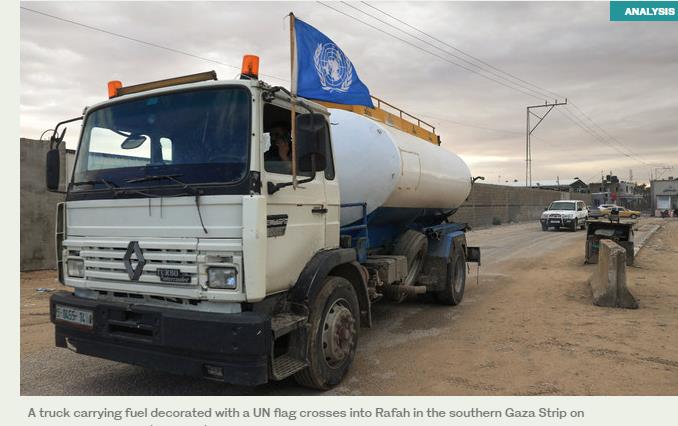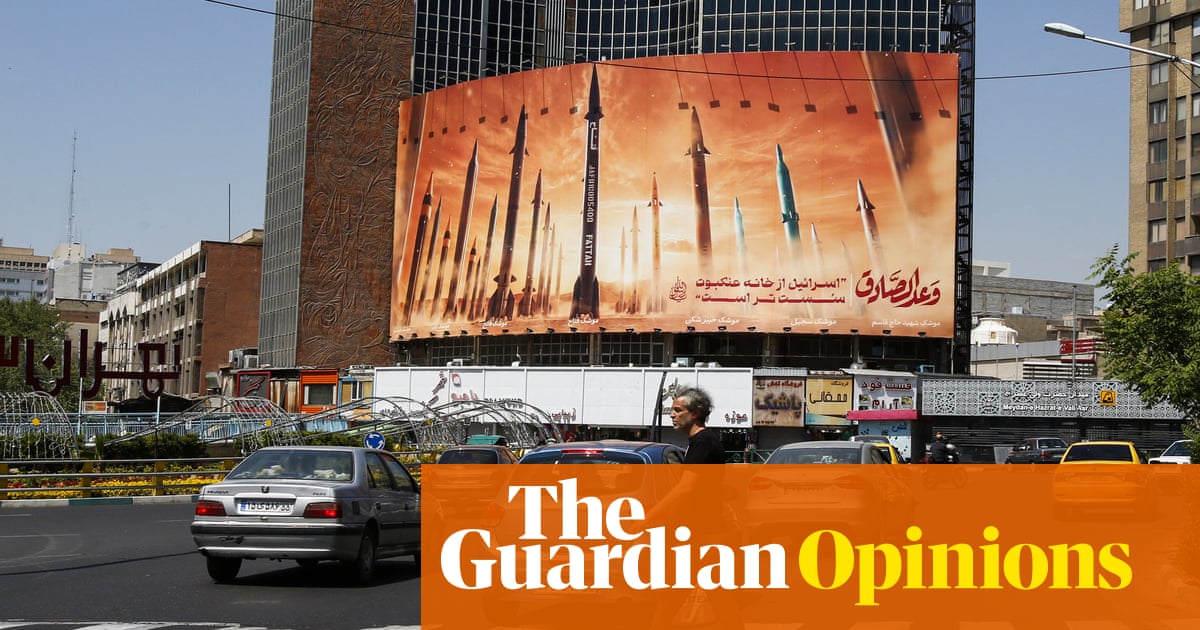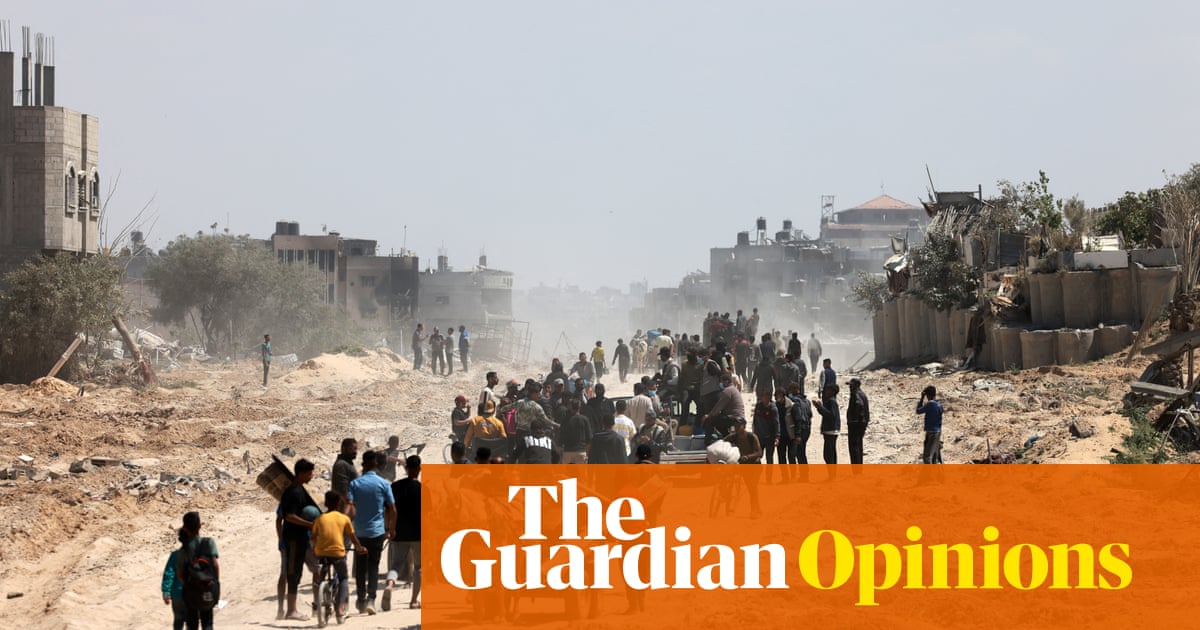
In Gaza, the six-month milestone has arrived, and with it a perceptible shift. Whatever amnesty the Israeli government was given by its allies in the wake of the Hamas attacks is now threatening to expire. To much of the public, who backed a ceasefire since the early days of the Gaza assault, it was always clear that a calamity was going to unfold. But in the official sphere – among politicians and parts of the media – the horror of 7 October extended what seemed to be a blank cheque for Benjamin Netanyahu and his government.
Perhaps it took the killing of seven World Central Kitchen aid workers for that shift to occur, perhaps it was cumulative, but what is hard to deny now is that Israel has gone rogue. Over the last six months, both in tone and in action, what has emerged is a state that is breaking all protocols in a way that situates it not within the democratic fold, but in some outlaw category. Israel’s government has insulted its allies and sponsors. It has ignored and defied the rulings and warnings issued by the organisations of that democratic, law-abiding world, the one that it claims to represent in a backward, hostile region. And it has made its allies look weak and helpless, destabilising their domestic politics.
On the ground, it is clear that Israel has not only overreacted, but that it is cavalier, trigger-happy and unreliable in its intelligence and methods of war. Haaretz recently reported that the Israel Defense Forces have created “kill zones” in Gaza: anyone who crosses their invisible lines can be shot. An investigation by the Israeli-Palestinian magazine +972 and the Hebrew-language site Local Call this week revealed a ghastly mechanisation of war: the military is using AI systems to identify targets, and sources said that 15 or 20 dead civilians were permitted as collateral killings during airstrikes on those identified as low-ranking militants. These are typically carried out with unguided munitions known as “dumb bombs”, preferable to anything more sophisticated because, according to one intelligence officer: “You don’t want to waste expensive bombs on unimportant people – it’s very expensive for the country and there’s a shortage [of those bombs].”
As Israel has levelled Gaza and tilted against the international community, it has undermined its own reputation, eroded faith in its military and political processes, and is exhausting the tolerance extended to it. It is a tolerance granted not just recently because of the Hamas attack, but because, traditionally, Israel is seen as sharing western political and cultural values. It is perceived as having the sort of “manners”, emphasis on social liberties and respect for global power hierarchies that make it deserving of inexhaustible support; its treatment of Palestinians an occasionally awkward wrinkle to be finessed away.
But impunity has a price for the perpetrator as well as the victim, and that price is that the state ceases to be able to regulate its own behaviour, and begins to self-sabotage. That point came about when foreign aid workers were struck with precision missiles, car by car, until they were dead. In the eyes of those who see thousands of Palestinian deaths as some unfortunate but distant, and perhaps even justifiable, tragedy, a country that kills the citizens of its allies has at last marked itself out as dangerous and out of control.
The incident has led to calls for the kind of action that, until this point, would have been condemned as constraining Israel’s right to defend itself. Nick Ferrari, conservative pundit and Daily Express columnist, has called for an arms boycott. “In most instances,” he wrote, “I can see the Israeli side,” but “sometimes it takes a friend to tell a friend where they’re going wrong.” The attack on aid workers was “indefensible”, he continued, because of the possibility that three UK citizens were killed by our own missiles by an army that “we’re meant to believe is one of the greatest on Earth”.
When the IDF is referenced with such contempt by a self-professed “friend of Israel”, something is changing. Similar calls are now being made by high-profile figures in Labour and the Conservative party, and civil servants involved in arms exports to Israel are considering legal action, worried that they may be personally culpable if it is found that Israel has broken the law. When the blood is shed closer to home, people can see it on their hands.
But Israel may also be running out of road simply because of the sheer duration of the assault. Six months is a long time for this kind of military action to continue at the pace it has, with the range of horror and escalation that it has involved. Dead babies, bombed-out hospitals, refugee camps, civilians (and indeed Israeli hostages) shot by snipers while walking unarmed to safety, and now famine – all of it broadcast to the world and punctuated by the relish of Israeli soldiers and the sneers of politicians and spokesmen.
Six months is a long time for such an intense conflict – which has drawn in cultural institutions, Hollywood, universities and schools, and dominated the airwaves – to continue in such an open-ended way. It is a long time for Arab governments to continue treading the fine line between maintaining good relations with the US and worrying about regional stability as the war spreads, as well as growing domestic anger regarding Gaza, and how disruptive that may be to the plans of unelected governments that don’t need more discontent to manage. In all sorts of ways, because of Gaza, the global political machine has been running hot.
Taken all together, it’s not hard to see why Joe Biden has made, by all accounts, his most strongly worded call with Netanyahu to date. He suggested, for the first time, that further support came with conditions. He demanded that Israel implement “a series of specific, concrete and measurable steps to address civilian harm, humanitarian suffering and the safety of aid workers”, and called for an immediate ceasefire. A new round of ceasefire negotiations are due to begin in Cairo today.
In short, the changes in tone and policy demands are only just beginning to bring the official world into line with public opinion and the concerns of countless protesters whose motivations were maligned and passions trivialised. The change of heart among Israel’s friends and underwriters is welcome, if it will go some way to alleviating the humanitarian crises and hastening the end of the war. But it also comes with an exculpating implication that all that has happened so far wasn’t entirely foreseeable and preventable.
Nesrine Malik is a Guardian columnist




